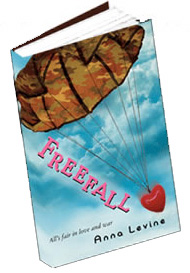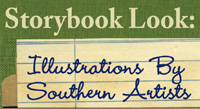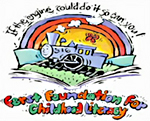FREEFALL by Anna Levine
 Recently author Anna Levine got in touch with me . . . all the way from Israel. I'm not sure how she found me, but she was looking for reviewers for her new novel, FREEFALL, published by Greenwillow (one of my favorite publishing houses) here in the US.
Recently author Anna Levine got in touch with me . . . all the way from Israel. I'm not sure how she found me, but she was looking for reviewers for her new novel, FREEFALL, published by Greenwillow (one of my favorite publishing houses) here in the US. The premise intrigued me - a coming of age story set against the backdrop of mandatory military service in Israel. I'm not Jewish, but a good friend of mine in college who was taught me a bit of Hebrew, invited me to celebrate Passover with his family, and basically opened my eyes to Jewish culture. We also have a strong Orthodox community here in Atlanta not far from my home. I think I've made it pretty clear on my blog how fascinated I am by various cultures, so I asked Anna to send me the book and when it arrived, I dove right in.
Now, I know Israel has a complicated history, and I'm not going to go into the politics of it here. But the fact is, there is an entire country of very normal people trying to live normal lives in a very stressful place. Teenagers there are experiencing all the feelings American teenagers experience, but with additional challenges unlike anything in the US.
FREEFALL is not a political book, it is a book about reality and personal experience. I found it to be a fascinating read. I also had lots of questions. I found Anna's answers as fascinating as the book, and hope you enjoy as well...
Hi Anna. What is the current requirement for youth in the military in Israel?
Like Abigail, the central character in my novel FREEFALL, all youth 18 years of age male and female must serve in the army. Although some are exempt due to health issues or for religious reasons, in general boys serve three years (unless they are pilots) and girls serve two years.
In your story, the military was such an integral part of the character's lives. I was especially surprised at the ease with which everybody seemed to handle and accept guns, and not just any guns, big, military machine-guns (thrown over Noah's back with his guitar). How do you feel about this part of your society?
In Israel, guns are carried by soldiers. It is rare that civilians not on military or police duty will carry one. One of the first and most important lessons that is drilled into every Israeli soldier is the responsibility which comes with carrying a gun. So like my character Abigail, once she is accepted into a combat unit she will have to decide if she is able to accept the responsibility which comes with carrying a weapon.
After twenty years of living here, and living through a lot here, I have come to terms with the necessity of a military presence but that does not mean that it makes it any easier when I see my sons carrying a gun when on military duty. Not all soldiers are combat soldiers; not all army activities relate specifically to security. There is a strong emphasis on education in our military from working with immigrants who need help adapting to life here, to working within the school system helping out children with special needs to studying the land and environmental issues. The military is integrated into every facet of our lives. Just today I met a soldier in the school where I teach part time. He is a professional athlete and this exempts him from regular military service to give him time to train. But he still serves and must give a certain number of hours, in his case working with students.
I especially enjoyed the friendship that developed between Aggie and Lily. It seemed instantaneous yet formed by dire circumstances. Have you or your children experienced anything like this?
I have two boys. My eldest served in a paratrooper unit, he’s now backpacking through India. My other son, Tomer, is now a paratrooper. The friendships between the soldiers in their unit which are established during the years of service, last a lifetime. They learn that these are the people who they will be able to count on for anything and for the rest of their lives. Once you have been in the field with someone, carried them, carried their equipment, leapt from planes with them, ate, celebrated and cried with them, these experiences become the glue that binds.
Is there a solidarity felt among the Israeli population because of this mandatory service? How do you feel it makes your country and people stronger, or do you have any negative feelings towards it?
Chapter 12 of FREEFALL begins as a typical bus ride anywhere in this country. Buses are crowded, private cell phone conversations are public and the radio on the bus is always blaring the news every hour. When something bad happens we all know it. There is a definite sense of solidarity among Israelis because we have all had some personal interaction with the military or have lived through terrorism. If I’m driving and see a soldier on his way home from his base, I’ll pick him up and drive him the rest of the way because I know someone else will do the same for my son. Do I have any negative feelings? Like every mother who gives birth to a child in this country one of the first words is a wish that by the time our child reaches 18 there will be peace and he or she will not have to serve.
Many people have strong opinions about Israel here in the US. What would you like to share with those who don't usually hear an average voice from within your country?
FREEFALL is what I want to share. My novel is a snapshot of Israel that goes beyond the headlines and into the daily lives of the people who live here.
Abigail Jacobs is eighteen years-old. She disagrees with her parents. Her friendships are in flux. She falls in love and is struggling to assert her independence. She is like any typical Israeli teenager who dreams of and strives for normalcy in their lives in spite of, or perhaps despite the complicated environment we live in.
Learn more about FREEFALL and Anna Levine at wordswimmer and dreamyreads. Or visit freefallthenovel.com and AnnaLevine.org.
Labels: BlogBookTour

















1 Comments:
I loved that interview. Thank you
Freefall was such a great read
Post a Comment
Links to this post:
Create a Link
<< Home